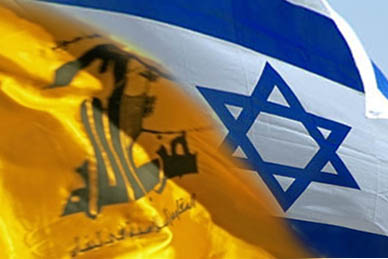Like Arabs, Israelis only understand force
Rafael Castro /Ynetnews
Published: 11.02.14/ Israel Opinion
Op-ed: Political and diplomatic events of past 40 years suggest that Israeli Jews tend to make concessions under duress rather than thanks to diplomatic moves and goodwill gestures.
One of the most-loved mantras of the Israeli street is that Arabs only understand the language of force. The list of opportunities Arabs have missed to come to terms with Zionism corroborates this claim. Yet Israeli Jews are woefully unaware that in this respect they are far more similar to their Arab cousins than they realize.
Reviewing the political and diplomatic events of the last 40 years – up to the very aftermath of the last war in Gaza – suggests that Israeli Jews, just like Arabs, tend to make concessions under duress rather than thanks to diplomatic moves and goodwill gestures.
This is a pattern of behavior that is not restricted to governments of the dovish left, but also encompasses those identified with the hawkish right, which over and over again subordinate strategy to tactics and principles to expediency.
The Camp David Agreements with Egypt were the result of the 1973 October War exposing Israel’s vulnerability to a concerted assault by neighboring states. The Oslo Agreements were the consequence of US President George H. W. Bush blackmailing Prime Minister Yitzhak Shamir, which led to the latter’s ouster by the Israeli electorate.
A few years later, Israel’s withdrawal from Lebanon was not the fruit of negotiations with the Lebanese government but rather a withdrawal under Hezbollah fire. The dismantlement of settlements in Gaza was another instance of Israel caving in to force; years of negotiations by the Palestinian Authority did not yield the fruits that Hamas was able to attain with its deadly ambushes. Furthermore, years of peaceful vigils by Palestinian families failed to hasten the release of minor lawbreakers, while the murderous kidnapping of Gilad Shalit secured the release of over 1,000 terrorists.
One would expect the Jewish nation with its deep-seated historical consciousness to learn from the past, but the events of 2014 do not reveal any lessons learnt. Hamas lobs over 4,500 rockets into Israel and earns in return the freedom to pay salaries to its employees and import hundreds of tons of steel and cement to rebuild destroyed infrastructure – including bunkers and tunnels.
Hamas leader Haniyeh vows to destroy Israel and celebrates the murder of Jewish civilians and is rewarded with privileged medical care for his daughter in Israel’s finest hospital.
It is tempting to assume that these gestures are evidence of quintessential Jewish compassion. But if this is so, why has Issa Amro, the leader of the Hebron civil resistance, been jailed for such murderous initiatives as leading European and Israeli observers dressed in Palestinian garb through Hebron’s Shuhada Street?
If Israel is really interested in discouraging violence and terrorism why has Abdullah Abu Rahma been sentenced to a two-year prison sentence for organizing the notorious –yet non-violent – protests against the separation barrier at Bil’in?
Add to all this, the fact that the Palestinian Authority has been unable to secure any significant concession from Israel and a clear pattern emerges: Successive Israeli administrations ignore goodwill gestures and suppress non-violent resistance with the pretext that these are insincere or provocative, yet are ready to compromise every time the enemy forces it to shed blood and take casualties.
From a tactical viewpoint, each Israeli concession seems pragmatic at the time it is made. Yet cumulatively these actions reveal that Israelis understand best the language of force. Israelis are proud to believe they are a bastion of civilization in the benighted Middle East.
However, they must realize that to make compromises only under threat – be it from Arabs, Europeans or Americans – will secure neither peace nor respect from their neighbors.
That is the reason those who blame Israel for the Israeli-Arab conflict are short-sighted, while those who deny Israel’s responsibility in abetting violence as the preferred strategy of Arab resistance are blind.




















